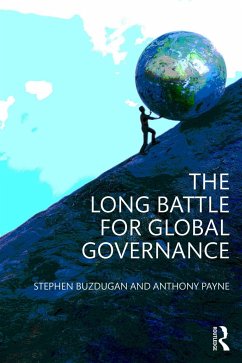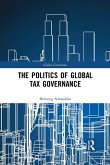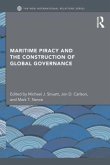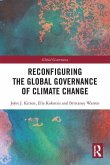This text examines the nature and dynamics of modern global governance and its institutions, from their inception in the mid-1940s to their current forms. It offers a fresh perspective on this topic by focusing its analysis on the growing involvement over this period of poor and middle-income countries (variously defined and described) in shaping the contours of global governance. The book analyses the manner in which such countries have been included and/or excluded in the institutions and processes of global governance through the concept of a 'changing political map', charting the manner in which these countries have challenged and ultimately related to the centres of power of global governance across each decade since the 1940s. In this way, the text focuses in particular on the ways in which poor and middle-income countries have organised themselves politically, the demands they have articulated and how these demands have or have not been met through all the key periods in the history of modern global governance. It thus charts the roots and explains the current rise to prominence within several key global institutions of countries such as Brazil, China, India and South Africa, setting this important political shift against the wider history of longstanding tensions in global politics between so-called 'Northern' and 'Southern' countries.
The Long Battle for Global Governance charts the manner in which largely excluded countries, variously described as 'ex-colonial', 'underdeveloped', 'developing', 'Third World' and lately 'emerging', have challenged their relationship with the dominant centres of power and major institutions of global governance across each decade from the 1940s to the present. The book offers a fresh perspective on global governance by focusing in particular on the ways in which these countries have organised themselves politically, the demands they have articulated and the responses that have been offered to them through all the key periods in the history of modern global governance. It re-tells this story in a different way and, in so doing, describes and analyses the current rise to a new prominence within several key global institutions, notably the G20, of countries such as Brazil, China, India and South Africa. It sets this important political shift against the wider history of longstanding tensions in global politics and political economy between so-called 'Northern' and 'Southern' countries. Providing a comprehensive account of the key moments of change and contestation within leading international organisations and in global governance generally since the end of the Second World War, this book will be of great interest to scholars, students and policymakers interested in politics and international relations, international political economy, development and international organisations.
Hinweis: Dieser Artikel kann nur an eine deutsche Lieferadresse ausgeliefert werden.
The Long Battle for Global Governance charts the manner in which largely excluded countries, variously described as 'ex-colonial', 'underdeveloped', 'developing', 'Third World' and lately 'emerging', have challenged their relationship with the dominant centres of power and major institutions of global governance across each decade from the 1940s to the present. The book offers a fresh perspective on global governance by focusing in particular on the ways in which these countries have organised themselves politically, the demands they have articulated and the responses that have been offered to them through all the key periods in the history of modern global governance. It re-tells this story in a different way and, in so doing, describes and analyses the current rise to a new prominence within several key global institutions, notably the G20, of countries such as Brazil, China, India and South Africa. It sets this important political shift against the wider history of longstanding tensions in global politics and political economy between so-called 'Northern' and 'Southern' countries. Providing a comprehensive account of the key moments of change and contestation within leading international organisations and in global governance generally since the end of the Second World War, this book will be of great interest to scholars, students and policymakers interested in politics and international relations, international political economy, development and international organisations.
Hinweis: Dieser Artikel kann nur an eine deutsche Lieferadresse ausgeliefert werden.








